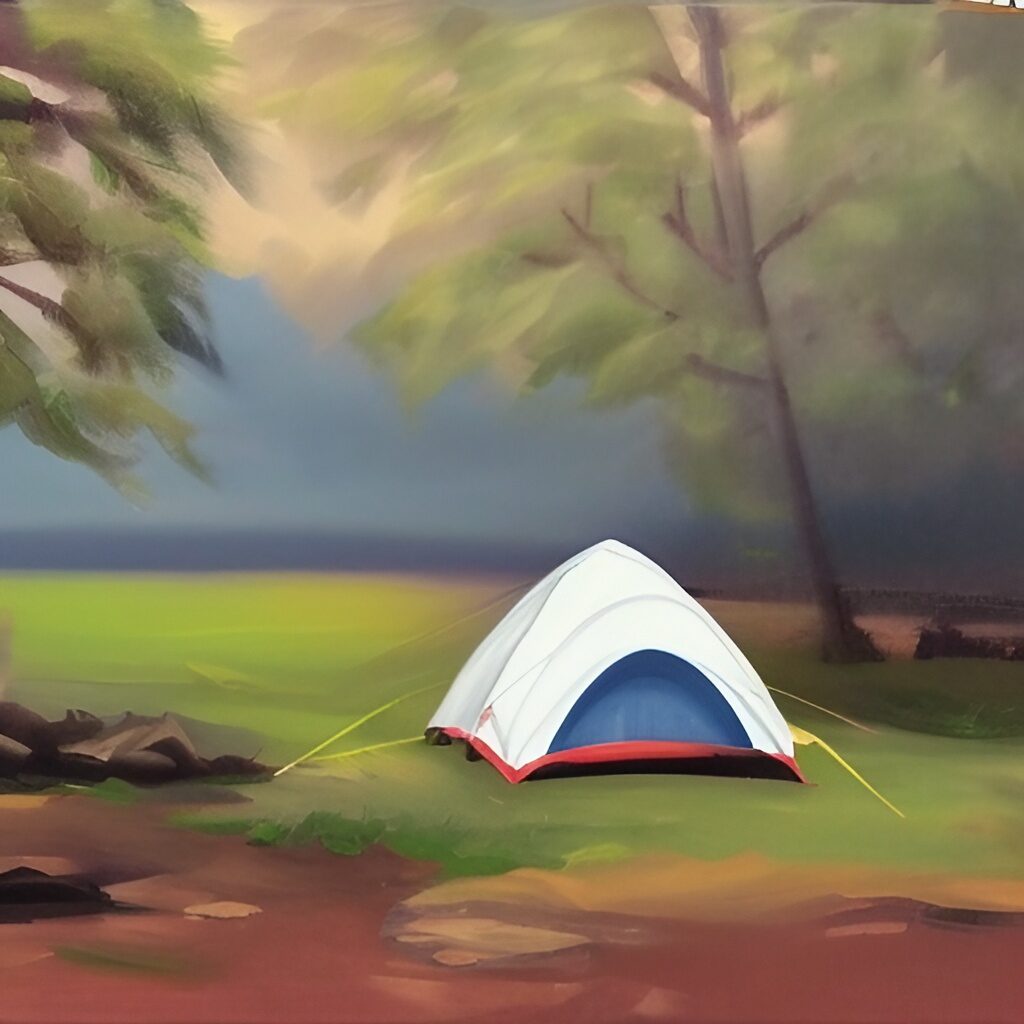
In this article, we scoured the internet for camper reviews and the science behind different materials to bring you the most comprehensive answer for “How well do sleeping bag liners work?”
Have you been debating a sleeping bag liner for a while but aren’t sure if they’re really worth it? An insulated sleeping bag should be sufficient for sleeping in the great outdoors, right?
A bit of research indicates a sleeping bag liner can be incredibly beneficial.
Sleeping bag liners create a barrier between your body and your sleeping bag, keeping your bag clean and extending its life. Additionally, they effectively provide insulation and comfort. The liner’s effectiveness depends on the material it’s constructed of, the temperature rating, and your intended use.
So the purpose of a sleeping bag liner is three-fold – to protect your sleeping bag, keep you warm, and provide additional comfort.
Now let’s look at how effective they are at each of these. We’ve looked everywhere for campers’ opinions and summarized their “votes.
- How Well Sleeping Bag Liners Keep You Warm – How Well Do Sleeping Bag Liners Work?
- How Well Sleeping Bag Liners Keep Sleeping Bags Clean – How Well Do Sleeping Bag Liners Work?
- How Much Additional Comfort Sleeping Bag Liners Provide – How Well Do Sleeping Bag Liners Work?
- Other Purposes of Sleeping Bag Liners – How Well Do Sleeping Bag Liners Work?
- How Sleeping Bag Liner Materials Impact Warmth and Comfort – How Well Do Sleeping Bag Liners Work?
- Silk – How Sleeping Bag Liner Materials Impact Warmth and Comfort
- Cotton – How Sleeping Bag Liner Materials Impact Warmth and Comfort
- Fleece – How Sleeping Bag Liner Materials Impact Warmth and Comfort
- Wool – How Sleeping Bag Liner Materials Impact Warmth and Comfort
- Thermolite – How Sleeping Bag Liner Materials Impact Warmth and Comfort
- Pay Attention to Your Sleeping Bag Temperature – How Well Do Sleeping Bag Liners Work?
- When a sleeping bag liner isn’t worth it – How Well Do Sleeping Bag Liners Work?
- Conclusion – How Well Do Sleeping Bag Liners Work?
- Frequently Asked Questions – How Well Do Sleeping Bag Liners Work?
- 1. What Exactly is a Sleeping Bag Liner and What Function Does it Serve? – FAQs
- 2. What Benefits Does Using a Sleeping Bag Liner Bring to my Camping Experience? – FAQs
- 3. Can a Sleeping Bag Liner Keep me Warmer in the Winter? – FAQs
- 4. Are There Various Types of Sleeping Bag Liners on the Market? – FAQs
- 5. Is it Necessary to Wash my Sleeping Bag Liner After Every Use? – FAQs
- 6. Is it Okay to Use a Sleeping Bag Liner with Any Kind of Sleeping Bag? – FAQs
- 7. Will Using a Sleeping Bag Liner Add Weight to My Camping Equipment? – FAQs
- 8. Can a Sleeping Bag Liner Keep Bed Bugs and Other Insects at Bay While Camping? – FAQs
- 9. What Effect Does the Sleeping Bag Liner’s Material Have on Its Effectiveness? – FAQs
- 10. Is There Any Disadvantage to Using a Sleeping Bag Liner? – FAQs
How Well Sleeping Bag Liners Keep You Warm – How Well Do Sleeping Bag Liners Work?
Sleeping bag liners provide extra warmth, and some people claim that they make them feel 25 degrees warmer. This can be extremely important when camping in colder temperatures.
The thermal protection varies greatly amongst brands and depends upon the materials it’s constructed of. The package will indicate the warmth rating.
So how does it function in the real world?
From the Reddit forum “Sleeping bag liners, do they really keep you warm?”
Well, while most campers find it extremely effective in adding warmth, it’s not perfect. Commenters often felt that the warmth ratings were exaggerated and did not add more than 5 degrees of warmth.
From Reddit forum “ WWYD – “Buy Warmer Sleeping Bag or Bag Liner?”
How Well Sleeping Bag Liners Keep Sleeping Bags Clean – How Well Do Sleeping Bag Liners Work?
Sleeping bag liners provide a layer between you and your sleeping bag. This is a great way to extend the life of your sleeping bag because it prevents your bodily fluids, such as sweat, oil, and dirt, from penetrating the bag.
Sweat, oil, and dirt can all accumulate in your sleeping bag and break down its insulation.
So what do campers think?
From Reddit forum “Do I need a sleeping bag liner?”
From Reddit forum “Sleeping Bag Liners: Do you use them?”
But there’s an alternative to sleeping bag liners for this purpose — that’s simply clean clothes.
Some people recommend eschewing a liner and changing into clean clothing to sleep in for hygiene’s sake. That is a lot of extra weight and space in your backpack for sleeping gear only.
A liner is one lightweight item you can reuse daily, so less space is needed.
How Much Additional Comfort Sleeping Bag Liners Provide – How Well Do Sleeping Bag Liners Work?
Sleeping bag liners offer an extra layer of comfort, which can be a welcomed luxury depending upon the terrain you’re sleeping on. It works well as an alternative to the feeling of your nylon bag against your skin.
From the Reddit forum “Sleeping Bag Liners: Do you use them?”
From the Reddit forum “Sleeping bag liners, do they really keep you warm?”
But on the downside, quite a few people felt that they were too bothersome to sleep in at night and often found themselves getting tangled up in them.
From a Reddit forum “What are the best sleeping bag liners?”
Other Purposes of Sleeping Bag Liners – How Well Do Sleeping Bag Liners Work?
Liners can serve a few other purposes depending on their materials. Some liners can help to keep bugs away while others help to wick sweat away while you sleep. These aren’t the norm but are worth mentioning for those looking for something more specific.
As is evident, liners are extremely useful tools when backpacking, on extended camping trips, or when sleeping in cold temperatures. Sleeping bag liners are a relatively affordable and lightweight way to protect your gear and yourself
How Sleeping Bag Liner Materials Impact Warmth and Comfort – How Well Do Sleeping Bag Liners Work?
The materials used can vary greatly depending on the liner’s intended use. Fleece, wool, and thermolite are all excellent options to research.
We’ve listed them, starting with those that are lightweight and with the least amount of insulation and ending with those that offer the most insulation.
Silk – How Sleeping Bag Liner Materials Impact Warmth and Comfort
Silk is a lightweight, breathable material that can wick moisture from the skin. It’s extremely appealing due to how comfortable and luxurious it feels.
Silk liners make a great sleeping bag alternative when you’re camping in warmer weather but still need a light layer at night.
Many feel it’s worth the splurge and that it’s worthwhile as a moisture-wicking liner that can be used alone in warm temperatures.
That being said, silk may not be a good choice if you want the most bang for your buck, as it doesn’t offer much insulation. It also isn’t as durable as many other materials, so it won’t last as long.
Another common complaint about silk is that it’s easy to get tangled up in it while sleeping. It’s also a bit more pricey than some other options.
If you’re looking for a silk liner, the Western Mountaineering Tioga Silk Sleeping Bag Liner gets rave reviews.
Cotton – How Sleeping Bag Liner Materials Impact Warmth and Comfort
Cotton is a lightweight option that feels nice on your skin.
Cotton liners tend to be the cheapest on the market, making them a good budget-friendly option for comfort and hygiene.
Cotton is more durable than silk, making it a better lightweight option for longevity, but they tend to be heavier.
We also don’t recommend cotton if you need moisture-wicking or if you need a fair amount of insulation.
Fleece – How Sleeping Bag Liner Materials Impact Warmth and Comfort
Fleece is a good affordable option for medium warmth needed.
It’s typically one of the bulkier and heavier options, making it less ideal for ultralight backpackers.
Wool – How Sleeping Bag Liner Materials Impact Warmth and Comfort
Wool, particularly Merino Wool, is an excellent option for warmth. It tends to be moisture-wicking, which is great for temperature regulation.
It also makes a great sleeping bag liner for regular use because of how comfortable and durable it is.
It doesn’t fall short in terms of insulation, either. In fact, it’s considered a great option if you need lots of additional warmth.
You might think wool is perfect, right? Well, it’s very pricey, so it can be prohibitive depending on your budget.
An excellent option for those looking to invest in a wool liner is the Big Agnes Merino Wool Sleeping Bag Liner.
Thermolite – How Sleeping Bag Liner Materials Impact Warmth and Comfort
Thermolite is a hollow fiber polyester liner that is great for insulation.
It’s a great lightweight liner that gives a lot of extra insulation and is quite durable. This is one of the best options for those who need their purchase to add a lot of value to their sleeping setup.
Thermolite consistently gets great reviews from campers and backpackers for how warm it is able to keep users while sleeping. It has some of the highest warmth ratings on the market, making it an excellent option to consider.
Pay Attention to Your Sleeping Bag Temperature – How Well Do Sleeping Bag Liners Work?
Knowing your bag’s temperature rating as well as your liner’s can help you determine what combination will give you the best insulation in the climate you’ll be sleeping in.
As we pointed out in our article “Are Tents Insulated? – 10 Ways To Stay Warm In A Tent”:
“The key here is to pay attention to the temperature rating, which is the lowest temperature at which the sleeping bag can keep you warm. But there are several caveats to this:
This is pretty much the lowest temperature you can survive, not thrive. To feel comfortable, buffer the temperature by 10 – 20F. So, for instance, if you know the temperature at your campsite will drop to 50F at night, then get a sleeping bag rated for 35F.”
When a sleeping bag liner isn’t worth it – How Well Do Sleeping Bag Liners Work?
While it’s clear sleeping bag liners are a valuable asset on almost all backpacking or camping trips, there are a few situations where they may not be worth it.
If you go hiking in the rain, swim, or are drenched in sweat, a sleeping bag liner will not work. It will not keep your bag clean, and it will not be able to provide warmth. If you know these conditions are likely, it’s best to omit one and take additional clothing instead.
Most, but not all, lightweight liners offer little warmth. It may provide some insulation, but it will not give the same amount of warmth that a liner with a higher temperature rating would. It’s best to ensure the gear you have can meet the needs of your trip.
If you plan to shower regularly, a liner may not be needed. This is especially true if the weather is warm enough.

Conclusion – How Well Do Sleeping Bag Liners Work?
To sum it up, sleeping bag liners are an invaluable component for any serious camper. They provide insulation, comfort, and protection for your sleeping bag. While often overlooked, they are an essential tool for anyone who loves functional gear that can give multifaceted value.
When shopping for one, remember to consider what types of trips you’ll be taking to help inform your decision. Now it’s time to make your pick!
Frequently Asked Questions – How Well Do Sleeping Bag Liners Work?
1. What Exactly is a Sleeping Bag Liner and What Function Does it Serve? – FAQs
A sleeping bag liner is a thin sheet of material that is placed inside your sleeping bag to provide additional insulation and protection. It can also aid in the cleanliness of your sleeping bag.
2. What Benefits Does Using a Sleeping Bag Liner Bring to my Camping Experience? – FAQs
A sleeping bag liner can enhance your camping experience by providing an additional layer of warmth and comfort. By keeping your sleeping bag clean, you can also extend its life.
3. Can a Sleeping Bag Liner Keep me Warmer in the Winter? – FAQs
Yes, by adding an extra layer of insulation between you and the outside environment, a sleeping bag liner can keep you warm in colder temperatures.
4. Are There Various Types of Sleeping Bag Liners on the Market? – FAQs
Yes, there are various kinds of sleeping bag liners on the market, such as silk, cotton, flannel, and synthetic materials.
5. Is it Necessary to Wash my Sleeping Bag Liner After Every Use? – FAQs
Yes, washing your sleeping bag liner after each use is recommended to keep it clean and free of bacteria.
6. Is it Okay to Use a Sleeping Bag Liner with Any Kind of Sleeping Bag? – FAQs
Yes, as long as it fits properly inside the sleeping bag, you can use a sleeping bag liner with any type of sleeping bag.
7. Will Using a Sleeping Bag Liner Add Weight to My Camping Equipment? – FAQs
Sleeping bag liners are lightweight and compact, so they will not add significantly to the weight of your camping gear.
8. Can a Sleeping Bag Liner Keep Bed Bugs and Other Insects at Bay While Camping? – FAQs
Yes, if made of insect-repellent materials or treated with insecticides, a sleeping bag liner can protect you from bed bugs or other insects while camping.
9. What Effect Does the Sleeping Bag Liner’s Material Have on Its Effectiveness? – FAQs
The material of the sleeping bag liner influences its warmth, durability, and moisture-wicking properties. In general, synthetic materials are more durable and moisture-wicking than natural fibers such as cotton or silk.
10. Is There Any Disadvantage to Using a Sleeping Bag Liner? – FAQs
Some downsides to using a sleeping bag liner include added cost (although they are relatively inexpensive), added time for washing and drying them after each use, and potential discomfort if not sized properly for your body shape or if made from uncomfortable materials for your skin type.














